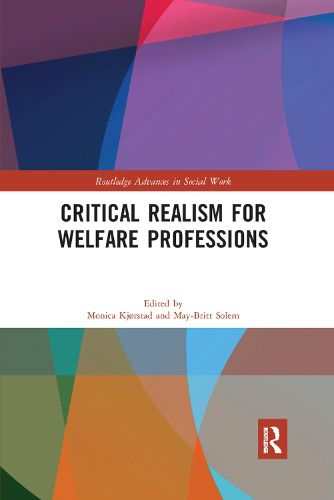Readings Newsletter
Become a Readings Member to make your shopping experience even easier.
Sign in or sign up for free!
You’re not far away from qualifying for FREE standard shipping within Australia
You’ve qualified for FREE standard shipping within Australia
The cart is loading…






As a discipline, social work needs an inclusive metatheory for both research and practice that goes beyond positivism and constructivism. This is the first book to present and discuss how critical realism can contribute to a more useful and realistic approach to both research and practice in social work. As a theory of science that includes normative theories and emphasises method-pluralism and holistic thinking, critical realism is applicable to a world of poverty, global health problems and social conflicts.
Contributors to this book present a realist perspective on social work. The connection between critical realism and social work is illuminated through a theoretical introduction in Part 1. Part 2 covers the specific topics of normativity, interdisciplinarity and education. Part 3 presents practical/empirical examples from contemporary research in social work, using different approaches based on critical realism.
As critical realism can contribute to a useful and realistic approach to research and practice, this book is essential reading for professionals, academics and students working in different fields of social work and health care.
$9.00 standard shipping within Australia
FREE standard shipping within Australia for orders over $100.00
Express & International shipping calculated at checkout
As a discipline, social work needs an inclusive metatheory for both research and practice that goes beyond positivism and constructivism. This is the first book to present and discuss how critical realism can contribute to a more useful and realistic approach to both research and practice in social work. As a theory of science that includes normative theories and emphasises method-pluralism and holistic thinking, critical realism is applicable to a world of poverty, global health problems and social conflicts.
Contributors to this book present a realist perspective on social work. The connection between critical realism and social work is illuminated through a theoretical introduction in Part 1. Part 2 covers the specific topics of normativity, interdisciplinarity and education. Part 3 presents practical/empirical examples from contemporary research in social work, using different approaches based on critical realism.
As critical realism can contribute to a useful and realistic approach to research and practice, this book is essential reading for professionals, academics and students working in different fields of social work and health care.